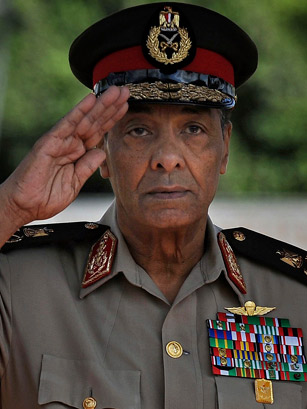
After initially resisting the calls from Tahrir Square for him to go, President Hosni Mubarak, Egypt's autocratic strongman of three decades, disappeared from power as if in a puff of smoke during last February's rebellion. When the smoke cleared, in Mubarak's place stood the khaki-clad 76-year-old Field Marshal Tantawi, head of the Supreme Council of the Armed Forces which had eased out the president and assumed his executive powers. The junta shooed the demonstrators (sometimes violently) off the streets, promising democratic elections. But it soon became clear that Tantawi and his men expect to have the last word in shaping Egypt's future, claiming authority superseding that of the recently elected parliament over governance and the writing of a new constitution. That sets the stage for a battle of wills in 2012 between elected civilian leaders and Tantawi's junta, the outcome of which could shape the post-Mubarak order for years to come.